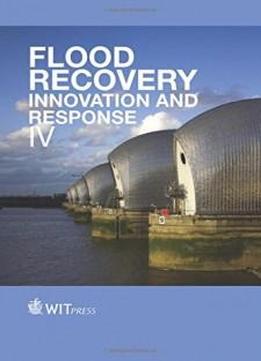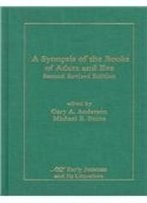
Flood Recovery, Innovation And Response Iv (wit Transactions On Ecology And The Environment)
by D. Proverbs /
2014 / English / PDF
22.3 MB Download
Flooding is a global phenomenon that claims numerous lives
worldwide each year. This book contains the proceedings of the 4th
International Conference on Flood Recovery, Innovation and
Response, set up to promote research into this area of study. When
flooding occurs in populated areas, it can cause substantial damage
to property as well as threatening human life. In addition, many
more people must endure the homelessness, upset and disruption that
are left in the wake of floods. The increased frequency of flooding
in the last few years, coupled with climate change predictions and
urban development, suggest that these statistics are set to worsen
in the future. How we respond and adapt to these challenges is key
to developing our long term resilience at the property, community
and city scale. Apart from the physical damage to buildings,
contents and loss of life, which are the most obvious impacts of
floods upon households, other more indirect losses are often
overlooked. These indirect and intangible impacts are generally
associated with disruption to normal life as well as longer term
health issues, including stress-related illness. Flooding
represents a major barrier to the alleviation of poverty in many
parts of the developing world, where vulnerable communities are
often exposed to sudden and life-threatening events. This book
covers a wide range of technical and management topics related to
flooding and its impacts on communities, property and people. These
include: Flood preparedness; Flood management; Flood recovery;
Adaptation to flood risk; Impacts of flooding on households,
businesses and / or communities; Flood protection - products and
processes; Urban flood management; Flood forecasting; Flood
vulnerability; Socio and economic impact; Innovative approaches;
Risk assessment and decision making; Flood case studies; Emergency
preparedness and response; Critical infrastructure; Flood damage
assessment.
Flooding is a global phenomenon that claims numerous lives
worldwide each year. This book contains the proceedings of the 4th
International Conference on Flood Recovery, Innovation and
Response, set up to promote research into this area of study. When
flooding occurs in populated areas, it can cause substantial damage
to property as well as threatening human life. In addition, many
more people must endure the homelessness, upset and disruption that
are left in the wake of floods. The increased frequency of flooding
in the last few years, coupled with climate change predictions and
urban development, suggest that these statistics are set to worsen
in the future. How we respond and adapt to these challenges is key
to developing our long term resilience at the property, community
and city scale. Apart from the physical damage to buildings,
contents and loss of life, which are the most obvious impacts of
floods upon households, other more indirect losses are often
overlooked. These indirect and intangible impacts are generally
associated with disruption to normal life as well as longer term
health issues, including stress-related illness. Flooding
represents a major barrier to the alleviation of poverty in many
parts of the developing world, where vulnerable communities are
often exposed to sudden and life-threatening events. This book
covers a wide range of technical and management topics related to
flooding and its impacts on communities, property and people. These
include: Flood preparedness; Flood management; Flood recovery;
Adaptation to flood risk; Impacts of flooding on households,
businesses and / or communities; Flood protection - products and
processes; Urban flood management; Flood forecasting; Flood
vulnerability; Socio and economic impact; Innovative approaches;
Risk assessment and decision making; Flood case studies; Emergency
preparedness and response; Critical infrastructure; Flood damage
assessment.










